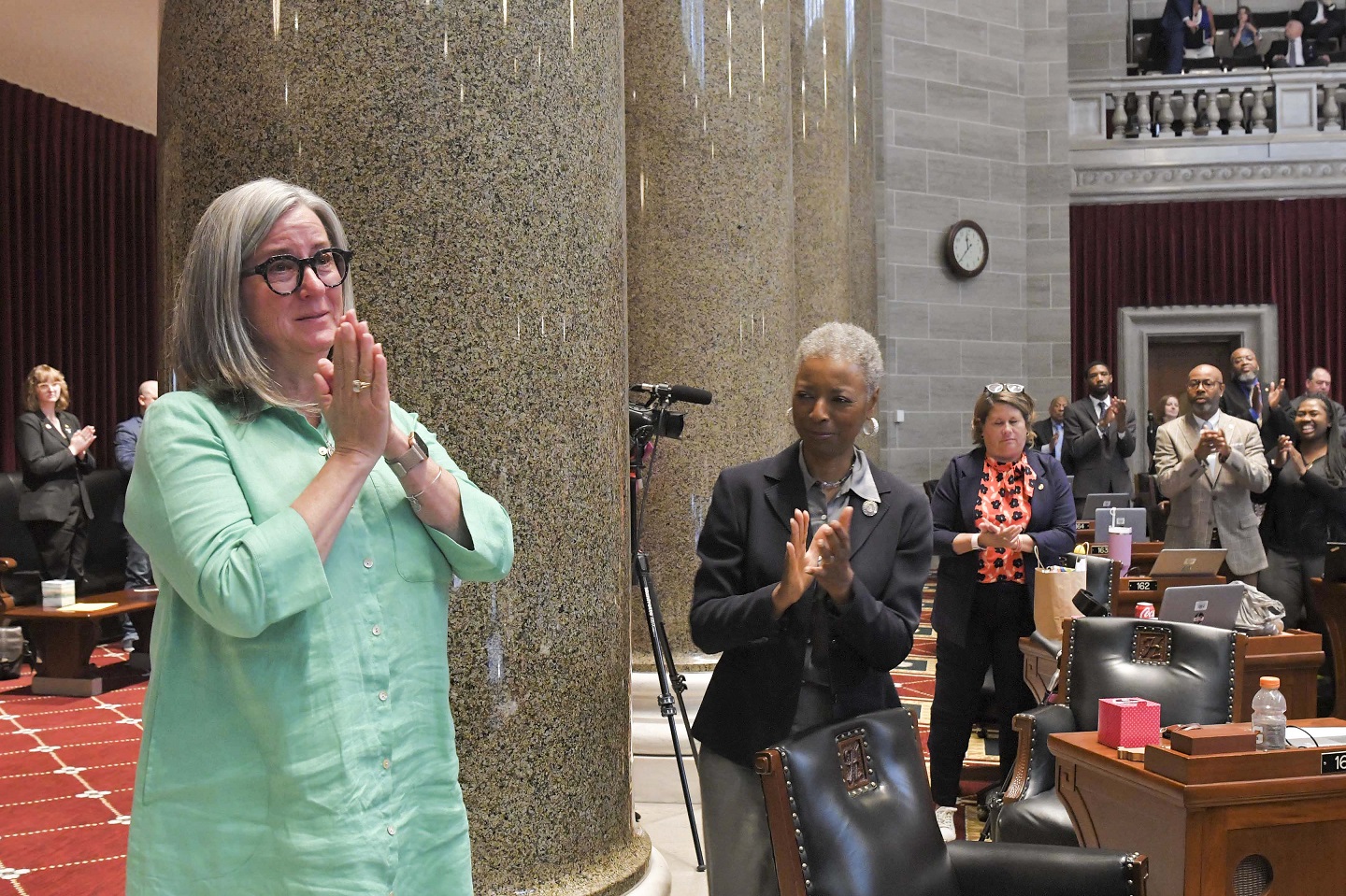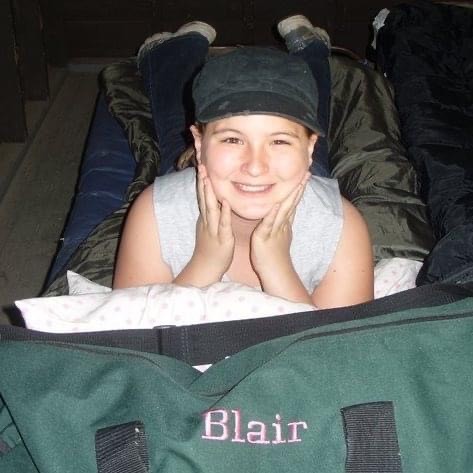A mother’s nearly 13 year quest for justice for her daughter might have finally reached its end, with one of the bills passed at the end of this year’s regular legislative session.

On July 4, 2011, 11 year-old Blair Shanahan Lane was struck by a bullet fired carelessly into the air by a person more than half a mile away. Blair died the next day. The man who fired that gun served 18 months in prison for involuntary manslaughter. There is no state law that addresses what is often called “celebratory gunfire.” Every legislative session since her daughter’s death, Michele Shanahan DeMoss has come to Jefferson City in an effort to change that.
On the final day of the 2024 session the legislature gave final passage to a bill that included Blair’s Law, to criminalize the careless discharge of a firearm in or into the limits of a municipality.
“I woke up this morning and I said, ‘This is the day. Let’s do it,’ and I just felt, without any hesitation, that it would happen,” Shanahan DeMoss said of that morning, and how she felt before heading to the Capitol. She was in the House when the final vote was taken.
Mark Sharp (D-Kansas City) was one of the sponsors of Blair’s Law, as he has been for the past five years. He has long seen the passion and emotion Shanahan DeMoss pours into the effort, and it became personal for him as well.
“It’s been so important to my community,” Sharp said. “Just in my own neighborhood, alone, on days like Fourth of July or New Year’s Eve and we have an almost three year-old daughter, and sometimes we don’t even feel comfortable sitting in our living room on the Fourth of July or New Year’s Eve because of the amount of gunfire that we can so easily hear. It sounds like it’s on your own street, it’s so close it comes to feel like it’s in your backyard. It’s very scary. People have been hurt and killed, officers have been hit by bullets that come down, it’s just incredibly scary. We hope that our prosecutor and our chief of police will work together to make some arrests.”
Representative Sherri Gallick (R-Belton) also sponsored Blair’s Law this year. She first heard about it directly from Shanahan DeMoss after knocking on her door while campaigning. She decided, then, that she would also push for the legislation.
Blair’s Law would specify that a person is guilty of unlawful discharge of a firearm if they, with criminal negligence, discharge a firearm in or into the limits of a municipality. A first offense would be a class “A” misdemeanor which carries up to a year in jail and a fine of up to $2,000; a second time would be a class “E” felony carrying up to four years in prison; and third and any subsequent offense would be a class “D” felony, punishable by up to seven years in prison.
The first time Blair’s Law was truly agreed to by the House and Senate was in 2023, but it was part of a bill that included other provisions to which Governor Mike Parson (R) had objections, and because of those he vetoed it.
Sharp and Gallick anticipate it will be signed this year.
“Last year was a little different because it was the first time passing Blair’s Law, and it was a little surreal, so when he vetoed it I wasn’t completely surprised,” Sharp said. “This year I have every reason to think the governor’s going to sign it. It’s been a very emotional day for me personally.”
Even after going through the emotional high to low of the first ever passage of Blair’s Law last year followed by the disappointment of its veto, Shanahan DeMoss did not hesitate to come to the Capitol multiple times this year to push for it again.
Supporters note that one of the positives of the proposal not having passed for so many years is that it continued to garner attention throughout that time. That publicity likely prevented at least some incidents of people firing a gun into the air.
Even if the governor signs Blair’s Law this year, Shanahan DeMoss, Gallick, and Sharp say they want to keep that attention up. That is especially true as the Independence Day holiday approaches, as it is both the anniversary of Blair’s death, and it remains a time when incidents of “celebratory gunfire” spike.
Last year the Kansas City Police Department’s SoundSpotter system – sound capturing technology that the Kansas City Police Department uses to identify potential gunshots – detected 193 rounds fired between 6 p.m. on July 4 and 6 a.m. on July 5.
“I don’t think that [Shanahan DeMoss is] just going to say, ‘Okay, this is done,’ because that’s not who she is,” Gallick said. “She will continue to bring awareness to it. I think it’s up to us, and the media, to be honest with you. Especially around the Fourth of July, but even with celebrations with the Chiefs and New Year’s and other things that go on, people should not be firing guns recklessly.
Gallick and Sharp are the latest in a long line of former House members who have sponsored Blair’s Law since 2011.

“I want them to know that I celebrate them,” DeMoss said of them, and of all the legislators who have carried the measure. “I celebrate that they put in the effort, that they listened to me, which I know at times is probably hard because I have a tendency to go on and on until I know I’ve driven my point home.”
Blair’s legacy continues in other ways, as well. Six of her organs went to five people, and her mother runs a charity in her name. Blair’s Foster Socks gives socks and other items to children in need.
Blair’s Law was sent to Governor Parson as part of Senate Bill 754. He can sign it into law, veto it, or allow it to become law without his action.
Shanahan DeMoss, like Sharp and Gallick, believes he will sign it, and said if a signing ceremony is held, “I will be there.”
